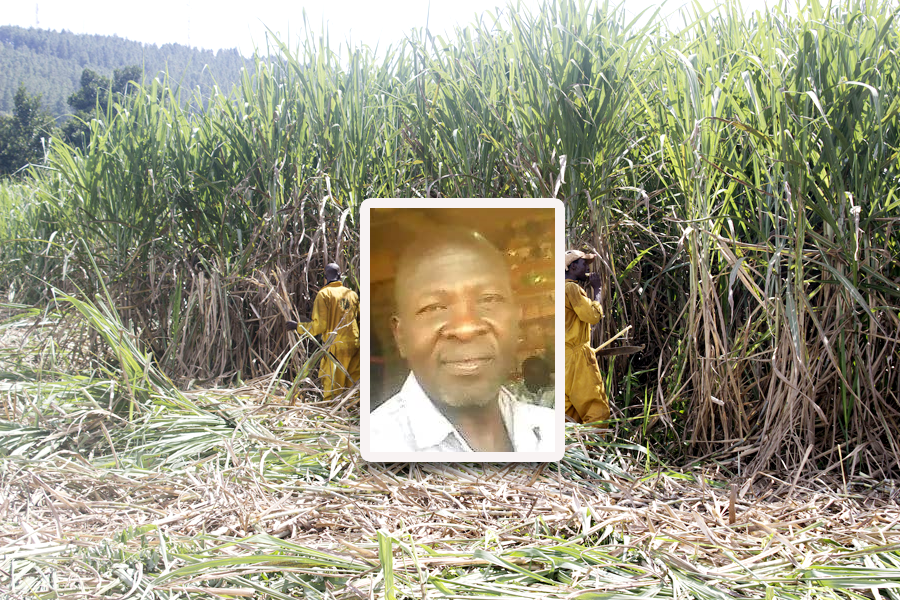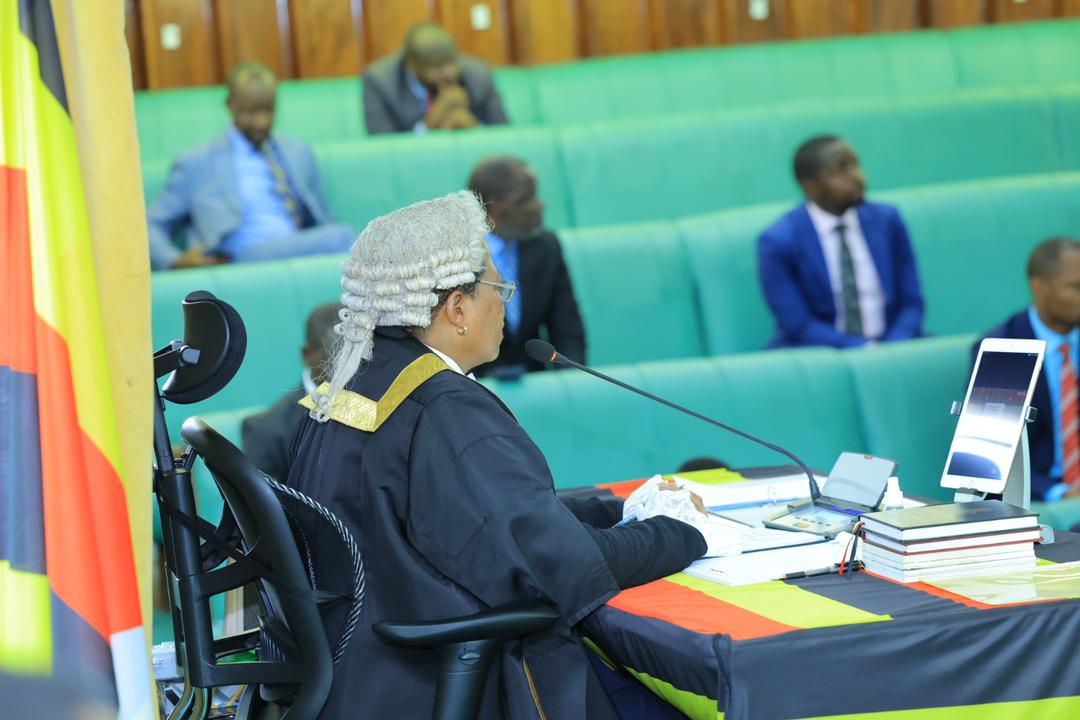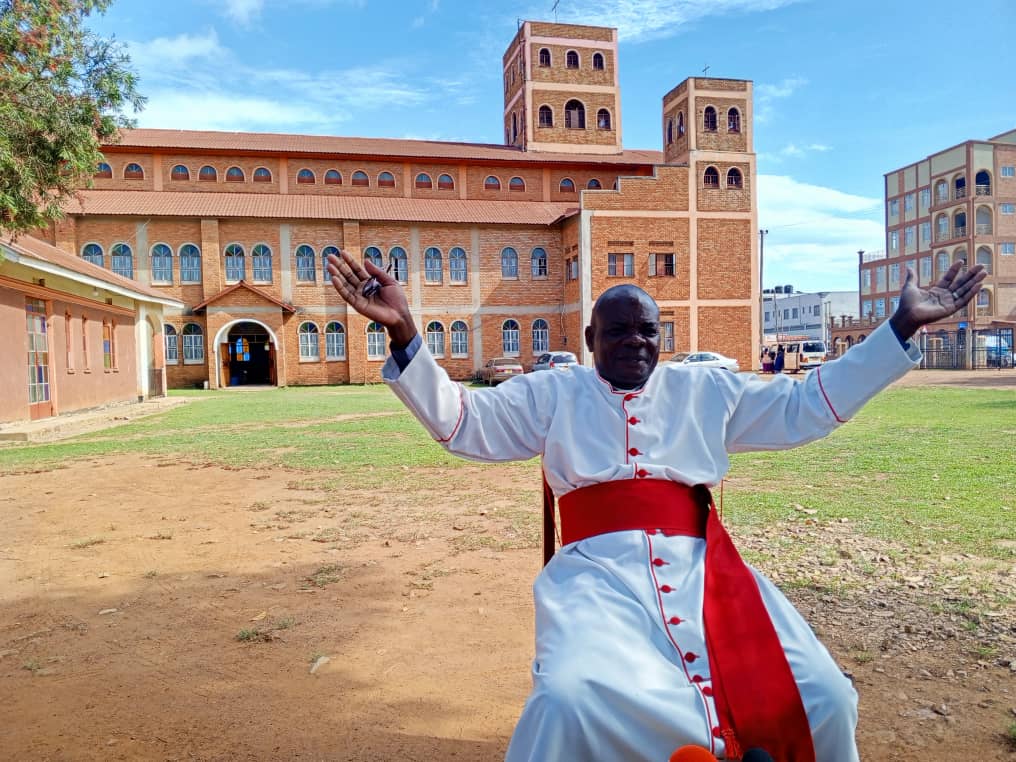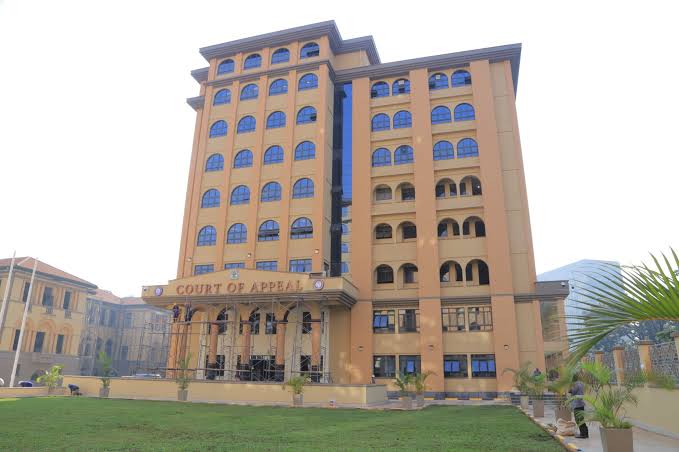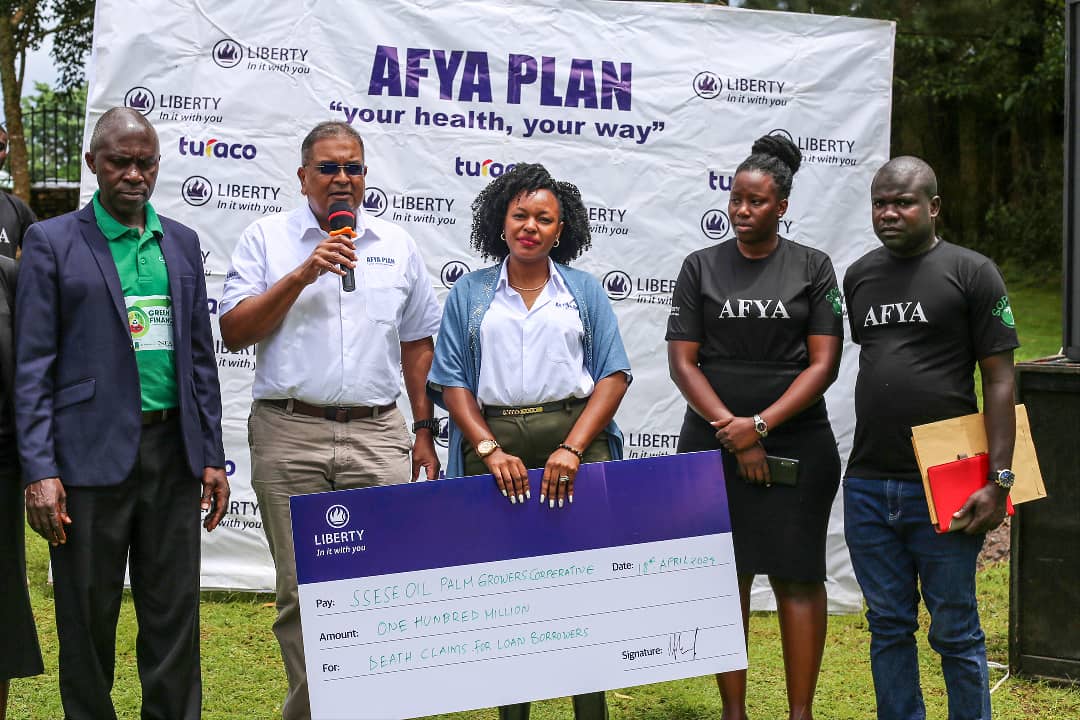Identifying the vital inputs needed for economic growth
By Edward Baliddawa
I am glad that this article is coming out after the New Year Message from H.E, the President to the people of Uganda. I was greatly encouraged by the President’s pronouncement that in this year, government is going to minimize Uganda’s dependence on foreign imports.
This should be good news to all of us who have continued to be greatly concerned about the country’s over dependence on not only foreign support but also imports.
However, while we continue to digest the entire message from the President in which he inspiringly spelt out what lays ahead for Uganda in 2018 and possibly for many more coming years, there is an economic juxtaposed dilemma that we need to immediately address as a country.
We all know that Uganda just like many African countries is majorly an agricultural country, whose biggest population (80%) live in the rural areas and depend on subsistence agriculture.
Because of this fact, many economic and policy experts have for many years urged government to increase the annual budget allocation to the agricultural sector substantially if meaningful social economic transformation is to take place.
The appeal has been for the budget allocation to the agricultural sector to be increased from its current 7% to 15% of GDP as recommended by the Maputo Declaration of 2003.
Actually, many leading economists in this country have argued that it is only with substantial increment to budget allocation for the agricultural sector that meaningful economic growth will be realised.
Although the arguments of those pitching for agriculture as the main engine for our economic growth may sound convincing, the global economic historical facts don’t support that line of argument.
I think this is where the rubber meets the ground and we should seriously start asking ourselves the very hard question.
Can subsistence agriculture that is currently practiced in Uganda and which interestingly, still largely depends on the whims of mother nature and which is endemic with all sorts of challenges including the disoriented land tenure system, unabated land fragmentation, lack of extension services and skewed structural direction be relied on to create the economic transformation that we desire as a nation?
Facts available from all over the globe show that, absurdly subsistence agriculture in its current form can't and won't attain us the economic growth or the economic social transformation for the 21st century economy.
Records available show that the world over, there is no country that has attained meaningful economic transformation through agriculture. Therefore we in Uganda shall be record breakers if we can transform our economy based on peasant subsistence agriculture.
It has never worked anywhere. It never worked even in Canada a country that has more fertile land acreage per capita than Uganda. (Size of Canada – 9,985 million km2, Canada’s Agriculture Productivity was 91,291 US dollars in 2016 compared to Uganda’s Agricultural Productivity of 460 US dollars in 2015, Source: www.theglobaleconomy.com).
Canada has the highest fertile land acreage per capita in the World (Agricultural land in Sq. km per capita in Canada was 20.25 per 1,000 people compared to Uganda’s 4.23 per 1,000 people in 2007 respectively, Source: www.nationmaster.com).
For its economic transformation just like many other countries, Canada had to rely on industrialisation. Vietnam, a country which for decades depended on agriculture has shifted its economic focus from experimenting with agriculture to industrialisation and modernisation. (Refer http://www.grips.ac.jp/forum/module/vietnam/main_en.pdf).
It is interesting to note that although, in Canada they have all the technology, they have adequate land more than us and in addition, they have easy access to water for production than us and inspite of all the above favorable factors, farmers in Canada still receive government subsidies to remain in agricultural production something that does pertain here in Uganda.
Given the above facts, therefore, for us in Uganda, agriculture must only be regarded and treated as a raw material source for value addition and a strategic source for food security but definitely not for the economic transformation of our people!
Our best bet as a country remains on industrialization. We must be making deliberate and strategic efforts to see that we exploit and leverage on the abundant resources that God has bestowed to us and the future generations.
As a country, we need to start mainstreaming the production of the vital inputs for industrialization for our economy. All countries that have made economic breakthrough have done so by either exploiting and or processing into semi-finished or finished products of the various raw materials such as coal, iron ore (steel), tin, aluminum, phosphates, copper, tin etc. which in essence spurred those economies to industrialization which is a prerequisite for meaningful economic social transformation.
According to available reports, Uganda has large deposits of many and various minerals including large tonnages of aluminous clays which are highly enriched in rare earths (REE) such as Yttrium, Scandium and Gallium. (Yttrium is used to make television tubes, Scandium is used in the aerospace industry components and Gallium is used in the making of solar panels, medical thermometers and Lasers).
The global demand for rare earths has increased as more uses for these elements are found. Today there are hundreds of uses for REE, ranging from high tech (lasers, camera lenses, computer memory modules, x-ray machines), energy (batteries, lamps, superconductors) and industrial (aerospace, caustic cleaning agents, specialized glass) applications. Ref: http://www.namibiarareearths.com/rare-earths-industry.asp
On October 7th 2013, the Monitor newspaper carried an interesting revelation in which it was reported that “New Minerals worth trillions have been discovered in Busoga”. Ref:http://www.monitor.co.ug/Business/Commodities/New-minerals-worth-trillions-discovered-in-Busoga-region/688610-2021266-by9acv/index.html.
It is not only Busoga region that is host to large deposits of minerals in this country. Karamoja is reported to have abundant deposits of limestone, first class marbles stones and gold. Bukedi and particularly in the area of Busia, is endowed with deposits of gold which the communities are trying to extract locally using crude methods that are hazardous to both human and the environment.
Actually it is reported that the mineral deposits in only Busoga and Sukulu in Tororo are worth to the tune of a staggering $800b, which is almost 16 times more than what is expected from the oil discoveries so far in the Albertine Graben.
Is it therefore, not paradoxical that regions reported to host the country’s potential economic trolls are currently rated as the poorest and the people there walloping in embarrassing poverty? The Uganda National Household Survey (UNHS) 2016/17 report by the Uganda Bureau of Statistics (UBOS) on poverty cites the worst hit regions as Karamoja, with 61 per cent of the people categorized as income poor, followed by Bukedi with 48 per cent and Busoga with 42 per cent.
It should be a shame to us as leaders to continue looking at only peripheral issues and not decisively addressing the catastrophic crisis of income and jobs that is facing our people.
Recently, it was reported in the local media that the UK government through its development arm Department for International Development (DfID) has committed an additional $37m (about Shs133.7b) to address malnutrition concerns in the Karamoja Sub-region. While this gesture from our donors/development partners is applauded, shouldn’t we be asking ourselves if really this is the best that can be done for Karamoja?
Why is it that we are failing to equip and empower the people of Karamoja with jobs and incomes which can enable them to take care of their nutrition issues in a much more sustainable manner than such temporary handouts?
Imagine what would be the economic impact for not only Karamoja as a region, but also Uganda’s economy, if that amount of money was geared towards the activation of the exploitation and processing of the minerals resources in Karamoja. I believe most of Uganda’s elite must have heard of this Nigerian businessman called Aliko Dangote. I don’t know whether this man has ever ventured into Uganda, but we know that his Cement Consortium is operating in 10 African countries including Zambia and Tanzania. The reports we have talk of the prices of cement both in Zambia and Tanzania going down by 50% as a result of Dangote cement manufacturing operations in those countries. Ref: https://www.daily-mail.co.zm/dangote-transforms-masaiti-reduces-cement-prices/
There is no justifiable reason as to why prices of cement in Uganda continue to be high while we have such large deposits of limestone in Karamoja, Tororo and Hima. We all know that affordable and steady supply of cement is very critical to the success of the infrastructural and habitat development of any country.
The question for me therefore, is what if we marshaled the Shs. 133billion to not only be able to exploit this limestone/ cement, marble and gold in Karamoja but also construct the long awaited railway line to evacuate these resources and products. With the ongoing electrification in Karamoja, surely exploitation of these valuable resources shouldn’t be a farfetched aspiration. Small scale and often clandestine mining of gold and other minerals should be encouraged to stop because it doesn’t really help the country and the people of Karamoja as a whole.
In the same breadth, there is no reason as to why serious exploitation and processing of those rear earth minerals in Busoga hasn’t started so that the youths of Busoga can get jobs.
It is reported that the prospectors/investors (a mixture of local and foreign investors) who are trying to do some mineral exploitation of the rare earth minerals in Makuutu in Bugweri, Busoga just don’t have enough financial muscle to undertake any meaningful operation.
However, given the high returns associated with rare earth minerals it would only be prudent that government finds a way of sourcing and providing of venture capital in not only the Matuuku rear earth exploitation, but also other viable minerals exploitation undertakings in the rest of country.
I don’t think that government should continue to be oblivious of the financial challenges our private sector is facing. Any meaningful Ugandan would be saddened to hear again that these entrepreneurs in Makuutu, in Muko for iron and steel, just like those of Sembule Group in Nalukolongo, and Dao Marble company have been left to collapse and be dumped in the Uganda’s dustbin of economic history.
Countrymen, all these facts stipulated above are pointing to the immediate need for our policy and decision makers to wake up and take the bull by its horns.
We need to start putting in place instruments and mechanisms that can permit the exploitation of our resources and the processing of those raw materials into industrial products that can be used not only locally here in our factories, but also exported to enable the country to earn the much needed foreign exchange and to create jobs.
We must be export oriented if we are to survive amidst the current fierce global competition. Actually, if done properly, the revenues from these activities can go a long way in helping us mitigate most of the funding challenges that we continue to face in the provision of basic needs and services to our people. This is when we shall be able to talk about meaningful social economic transformation that will be felt and indeed seen by our citizenry.
The big question however remains how do we get there?
Agriculture in its present subsistence form will certainly not deliver us. The notion that all economic activities in this country should be left to the private sector without critical government support save for attracting foreign investors needs to be revisited.
It is no longer a secret that our private sector is still small and under-financed to be able to undertake any meaningful, sizeable and sustainable industrial production.
Although, it has taken us this long and with a lot of pain to realize this fact, we do need to move fast and work on putting in place instruments and mechanisms that will facilitate the government to deliberately support the private sector in this effort of leveraging on all our endowments for the benefit of our people.
We need to take lessons from China, a country that has risen from utter poverty and despair, but in only a period of less than half a century has become a world economic giant to the surprise of many and even defying all known economic development models.
China vigorously pursues a deliberate and carefully orchestrated protectionist policy coupled with efforts to prop-up and support its industries both operating locally in China and outside the country.
It has done this through a number of ways including taxation, restrictions on certain imports and ensuring that the Chinese entrepreneurs access cheap financing and technical knowhow. All this in effect, works in favour of the Chinese products to be much cheaper both locally for the local consumption market and also internationally for the export market.
Therefore, it is no wonder that not only our private sector in Uganda is being out-competed hands down by the Chinese, but also Chinese products continue to be dumped on our markets.
In conclusion, I must also add this disclaimer that I don’t seek or even pretend to be the first person to point out the issues that I have tried to discuss in both this and my previous article. I am cognisant of the fact that our President, H.E Yoweri Kaguta Museveni has for many years been at the helm of the campaign of both encouraging local entrepreneurs and foreign investors bring about economic growth in our country.
In some instances, the President as the Chief Executive of Uganda has offered unprecedented help to some of our local entrepreneurs while at the same time giving attractive incentives to the foreign investors.
However, I think where more emphasis needs to be exerted in this year 2018, if we are to overcome the current conundrum that we are faced with is in the following areas:
- Reducing our current overdependence on foreign support by deliberately nurturing our local entrepreneurs through business and management mentorship, financing support and supervision.
- Pursuing active policies to protect our burgeoning industries by imposing anti dumping measures, strict adherence to standardization for both locally manufactured and imported goods.
- Government deliberate intervention through financing of our local entrepreneurs/investors particularly in the economic strategic areas of infrastructure development, minerals mining, exploitation and processing.
- Embarking on vigorous leveraging on the resources that we are endowed with by making the production of the vital industrial inputs part and important component of our aspiration for economic growth.
Lastly and very equally important, we must tackle the issue of commission agents, speculators, schemers and international mafias who seem to have become increasingly more daring and non-caring about the fate of Uganda. They have scared many potential foreign investors and in the same measure frustrated local investors.
Many good government initiatives that would have seen this country propel to enormous economic growth and better living for our people, have been derailed, blocked or resisted altogether. This is a real scourge and cancer that must be tackled with laser-beam determination without favour or patronage.
Ref: https://www.independent.co.ug/analysis-messing-ugandas-minerals/ and “Politics of Elite Corruption in Africa: Uganda in a comparative African perspective; by Roger Tangri and Andrew Mwenda published by Routledge, New York - 2013.
The author is former MP for Kigulu North.
Email: edward.baliddawa@gmail.com






